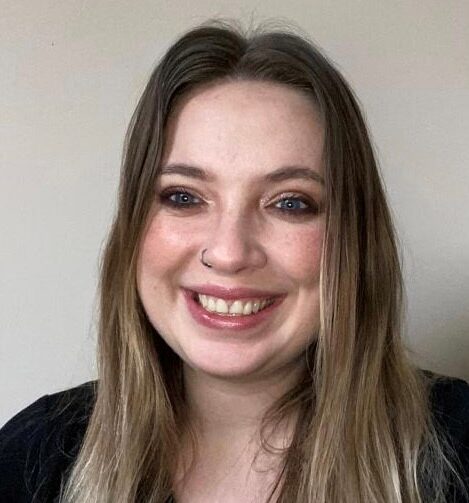Improving the wellbeing of Personal Assistants in Scotland
Project Background
In Scotland, IMPACT has been working with the Personal Assistant (PA) Programme Board on a project seeking to improve the wellbeing of Personal Assistants employed by disabled people. The purpose of the PA Programme Board is to offer advice to the Minister for Social Care, Mental Wellbeing and Sport on how to ensure PAs are fully recognised as members of the social care workforce. The IMPACT PA Wellbeing project is hosted by the PA Programme Board’s Wellbeing Subgroup.
The PA Wellbeing project has had a 12-month duration, from mid-2023 to mid-2024. It has been led for IMPACT by Rhiann McLean and Richard Brunner from the University of Stirling.
IMPACT calls this type of project a ‘Demonstrator’. Demonstrators are projects that explore how we can use evidence to address a major strategic issue in social care. We work with local stakeholders, including people with lived experience, and draw on evidence to understand the issue and how it can be addressed. We also see how the evidence from each Demonstrator can be made useful in other nations across the UK.
IMPACT Factfile
- Year: 2023 – 2024
- Delivery Model: Demonstrator
- Four Nations: Scotland
- Themes:
What has the PA Wellbeing project been doing?
Our approach to the PA Wellbeing project has been grounded in two beliefs. First, that people with lived experience should be in the driving seat of change across Scotland. Second, that evidence makes the most impact when it is connected to real lives. The Disabled Peoples’ Movement and Independent Living Movement campaigned for years for the right to personal assistance, and the involvement of PA employers has been central to the PA Wellbeing project. The project outcomes have sought to support the mutual relationship between PA employers and PAs: PA wellbeing and PA employer wellbeing go together.
Our work on PA Wellbeing
IMPACT conducted an international evidence review about PA wellbeing, and Richard and Rhiann facilitated two expert groups of PA employers and PAs from across Scotland to review the emerging themes and refine recommendations on how to improve PA wellbeing in Scotland. This is described below:
A. Evidence review of PA wellbeing
We saw a major evidence gap in understanding ‘what works’ in PA wellbeing. So, in collaboration with key stakeholders from the Wellbeing Subgroup, a team from IMPACT (Dr Aisha Macgregor, Dr Obert Tawodzera, Richard Brunner and Rhiann McLean) carried out a systematic evidence review that aimed to find existing evidence about:
- What factors influence PA wellbeing?
- What interventions or supports can improve PA wellbeing?
B. Expert groups of PAs and PA employers
To ‘ground’ the evidence review in lived experience and the Scotland-specific context, we recruited and facilitated two expert groups of PA employers and PAs from across Scotland. Each group met online four times between February 2024 and July 2024 and each member was paid for their involvement, and for any reasonable adjustments. They discussed the emerging themes and help to refine the recommendations in the evidence review. An evaluation of the experiences of group members is here (Word and PDF).
C. Evidence-informed recommendations for PA wellbeing in Scotland
The evidence review makes recommendations to improve PA wellbeing in Scotland. These are based on the findings from the evidence combined with the input of the expert groups, and in collaboration with PA wellbeing stakeholders in Scotland. The recommendations are to be taken forward in Scotland through the Wellbeing Subgroup of the PA Programme Board.
D. A pilot of evidence use about PA wellbeing: the Blue Sky Social Care Card
Early in our project, we learned that PAs are unable to access the same employee discount cards that their peers in health and social care can access (such as the Blue Light card). The Blue Sky Social Care Card is a discount card for social care workers that welcomes PAs and unpaid carers. To find out more about whether access to the Blue Sky Social Care Card can enhance PA wellbeing, we worked with PA Network Scotland on a small pilot with PAs across Scotland to test out the card. This modelled how evaluation can be done to test interventions, and offered useful internal evidence to partners about what added value discounts cards can offer to PAs
Theory of Change
A Theory of Change is an approach used to understand how an intervention leads to change, while not oversimplifying cause and effect. Our Theory of Change set out our plan for doing the PA Wellbeing project in 2023-24. Find the Theory of Change for the PA Wellbeing project below.
Want to know more?
Throughout the PA Wellbeing project, Richard and Rhiann presented at academic, policy and practice events, and engaged with a wide range of relevant stakeholders interested in PA wellbeing, in the lived experience of PA employers, and in the social care workforce more widely. To find out more about the PA Wellbeing Demonstrator project, please email IMPACT at [email protected].
All documents can be made available in alternative formats, such as large print, and can be made available in alternative languages. Please email [email protected] with any requests.
Meet Our Demonstrators: Rhiann McLean & Richard Brunner

Rhiann McLean
Rhiann also has an interest in the intersection of gender and disability, working on projects seeking to understand more about disabled women’s experiences of gender based violence.

Richard Brunner
Most recently he has collaborated with Glasgow Disability Alliance, producing evidence on Future Visions for Social Care including on unmet needs in social care and what works in social care.
